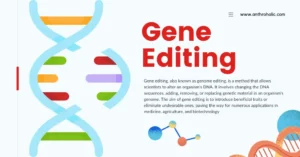AI Answer Evaluation Platform Live Now. Try Free Answer Evaluation Now
American Ethnological Society
What do the study of Indigenous languages in the 1800s and cutting-edge ethnographic research on digital activism have in common? Both fall under the far-reaching legacy of the American Ethnological Society (AES)-the oldest anthropological society in the United States. Founded in 1842, long before anthropology was even recognized as an academic discipline, AES has played a pivotal role in shaping how Americans-and the world-understand cultures, communities, and human diversity.

From its roots in early ethnology to its present-day focus on global sociocultural issues, the AES has continually evolved, staying relevant while fostering bold scholarship. In this blog, we’ll dive into the rich history, current initiatives, and enduring impact of the American Ethnological Society, showing why it remains a cornerstone of anthropological thought and public engagement today.
1. Origins of the American Ethnological Society
The American Ethnological Society (AES) was founded in 1842 in New York City-decades before anthropology was institutionalized in American universities. Its primary founder, Albert Gallatin, was a Swiss-American statesman, linguist, and ethnologist who believed that the systematic study of Indigenous peoples of the Americas could offer profound insights into human history and society.
Initially, AES was heavily focused on the ethnology of Native American groups, emphasizing language, kinship, and customs. This early phase mirrored a broader 19th-century fascination with classifying human populations and tracing cultural origins-though often shaped by colonialist worldviews. Despite these limitations, the AES laid important groundwork by promoting empirical research, fieldwork, and cross-cultural analysis long before such methods became mainstream.
The society aimed to foster dialogue among intellectuals interested in human diversity, and its early publications included detailed reports and maps, many of which contributed to linguistic and cultural anthropology in nascent forms.
2. Evolution of the Society Through the 19th and 20th Centuries
As anthropology matured in the late 19th and early 20th centuries, the AES adapted. The field was shifting from speculative ethnology toward more systematic, field-based anthropology inspired by figures like Franz Boas. During this time, AES redefined its mission to include broader anthropological concerns-culture, language, race, archaeology, and physical anthropology-aligning with what would become known as the four-field approach.
A major transformation occurred in 1902, when the AES merged with the newly formed American Anthropological Association (AAA). This affiliation gave AES access to a larger network and helped it exert greater influence in academic and policy circles. However, it retained its unique focus on ethnological and sociocultural dimensions of anthropology.
In the mid-20th century, especially during the post-World War II academic boom, AES became a hub for critical and theoretical anthropology. It was instrumental in elevating the status of cultural anthropology in the U.S., encouraging scholars to challenge structural functionalism and explore symbolic, interpretive, and later postmodernist approaches.
3. Role in Shaping American Anthropology
The American Ethnological Society has significantly influenced the trajectory of American anthropology by supporting groundbreaking work and fostering intellectual debate. It provided a platform for voices that would later become foundational in the field.
Through conferences, publications, and collaborative projects, AES played a key role in the careers of scholars like Margaret Mead, Ruth Benedict, and Clifford Geertz-thinkers who helped redefine culture as a system of meaning rather than merely behavior or artifacts. Their work, often first presented or debated within AES forums, rippled outward to shape public and academic discourse.
AES also helped steer anthropology toward an ethnographic focus, privileging long-term immersion, participant observation, and qualitative methods. These became hallmarks of American cultural anthropology and set it apart from European counterparts more focused on theoretical models or colonial administration.
Even today, AES continues to foster a scholarly environment that values critical engagement with social issues, such as race, migration, globalization, and decolonization-extending the society’s impact far beyond the classroom or ivory tower.
4. The AES Today: Structure, Mission, and Activities
In its modern form, the American Ethnological Society functions as a vibrant sub-section of the American Anthropological Association (AAA), with a specific focus on cultural and ethnological anthropology. While its roots are deep in the 19th century, today’s AES operates with an eye toward the future, actively encouraging dialogue across cultures, disciplines, and generations of scholars.
One of the Society’s most visible contributions is its flagship journal, American Ethnologist, first published in 1974. The journal is renowned for its theoretically rich and ethnographically grounded articles on pressing social and political issues-from environmental justice and refugee migration to gender identity and indigenous sovereignty. It has become a key platform for anthropologists who combine deep fieldwork with bold theory.
In addition to publishing, AES organizes annual meetings, often in conjunction with AAA conferences, where scholars present new research, participate in panels, and network with colleagues across specialties. The society also runs award programs, like the AES Senior Book Prize and Sharon Stephens Prize, to honor innovative, socially engaged scholarship.
AES also supports early-career scholars and graduate students by offering paper prizes, travel grants, and mentorship opportunities-ensuring the next generation of ethnographers can find both support and recognition.
5. Impact on Global Anthropology and Public Discourse
The influence of AES extends well beyond the borders of the United States. Its journal and conferences regularly feature research from across the globe, reflecting the interconnected nature of contemporary anthropology. Whether it’s an ethnography on informal economies in Nairobi or digital resistance in Hong Kong, AES provides a scholarly home for diverse perspectives.
Importantly, AES has become a champion of critical, decolonial, and reflexive approaches. By spotlighting marginalized voices and critiquing Western-centric paradigms, the society contributes to a more inclusive and socially conscious anthropology. This aligns with a growing trend in the field: to not just study the world, but to engage with and ethically advocate for the communities anthropologists work with.
In recent years, AES-affiliated scholars have contributed to major public debates on topics like:
- Structural racism and inequality
- Migration and border regimes
- Climate change and indigenous knowledge systems
- LGBTQ+ identities in cross-cultural contexts
This commitment to public engagement makes AES an important player in shaping how anthropological knowledge enters policy conversations, media coverage, and educational curricula.
6. Why the American Ethnological Society Still Matters
In a world marked by increasing cultural complexity, rapid technological change, and persistent inequality, the role of anthropology-and by extension the AES-is more vital than ever. The American Ethnological Society continues to be a guiding force in:
- Encouraging ethical, immersive research
- Critiquing dominant narratives
- Amplifying underrepresented voices
- Promoting cross-cultural understanding
Its continued relevance lies in its ability to evolve without losing sight of its founding purpose: to foster nuanced understanding of human societies through close, respectful engagement.
As academic institutions confront calls for decolonization and greater inclusivity, AES stands out for its proactive stance. It’s not just a historical artifact; it’s a living, responsive institution shaping how anthropology contributes to real-world issues today.
For students, researchers, and curious minds alike, the AES remains a beacon for critical, compassionate anthropology.
A Legacy of Inquiry, A Future of Relevance
The American Ethnological Society is more than just the oldest anthropological society in the United States-it is a living chronicle of anthropology’s growth, transformation, and relevance. From its 19th-century focus on documenting Indigenous cultures to today’s bold explorations of climate justice, migration, and identity, AES has continually shaped how we think about human diversity.
Its impact goes far beyond academic circles. By promoting thoughtful, engaged ethnography, supporting critical perspectives, and creating space for inclusive scholarship, AES ensures that anthropology remains vital-not just for understanding the world, but for changing it.
As cultural landscapes shift and global challenges mount, the Society’s commitment to deep listening, contextual understanding, and ethical research stands as a model-not only for anthropologists but for anyone seeking to make sense of our shared human experience.
Whether you’re a student just discovering the field or a seasoned researcher looking for a collaborative community, the American Ethnological Society offers both history and vision-a bridge between where anthropology has been and where it’s going next.
References
- Evolution and Affiliation with AAA: In the early 1980s, AES became a section of the American Anthropological Association (AAA), maintaining its distinct identity while benefiting from the broader association’s resources. https://americanethnologist.org/about/
- Publication of American Ethnologist: Since 1972, AES has published the journal American Ethnologist, focusing on social and cultural anthropology. The journal is known for combining ethnographic specificity with original theoretical thinking. https://americanethnologist.org/journal/
- Awards and Recognition: AES offers several awards, including the Sharon Stephens Prize for junior scholars and the Senior Book Prize for works that are deeply ethnographic and address contemporary issues.
- Current Activities and Membership: Today, AES is a thriving group of over 1,000 anthropologists who organize annual meetings, publish scholarly work, and promote anthropology to a wider audience.



